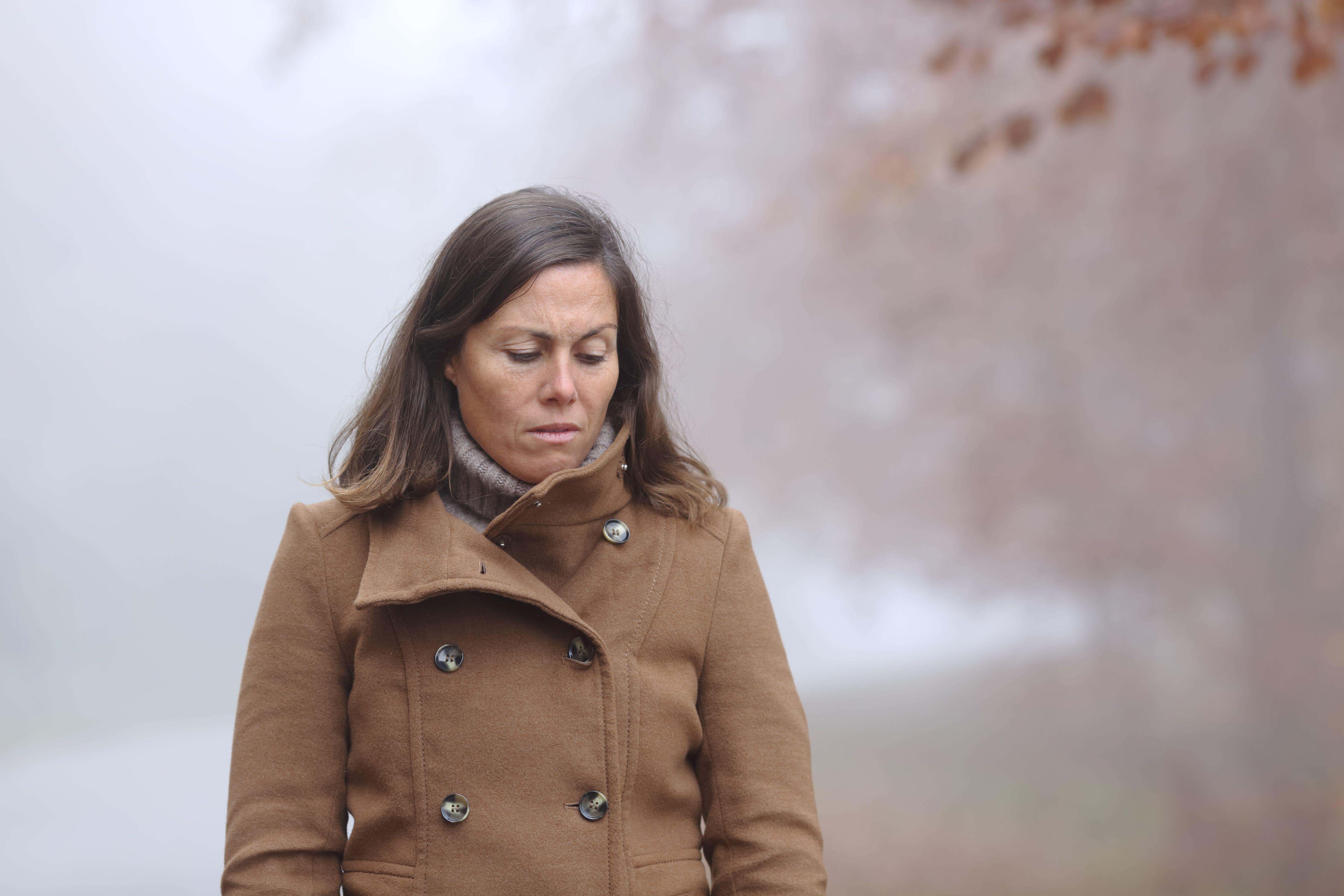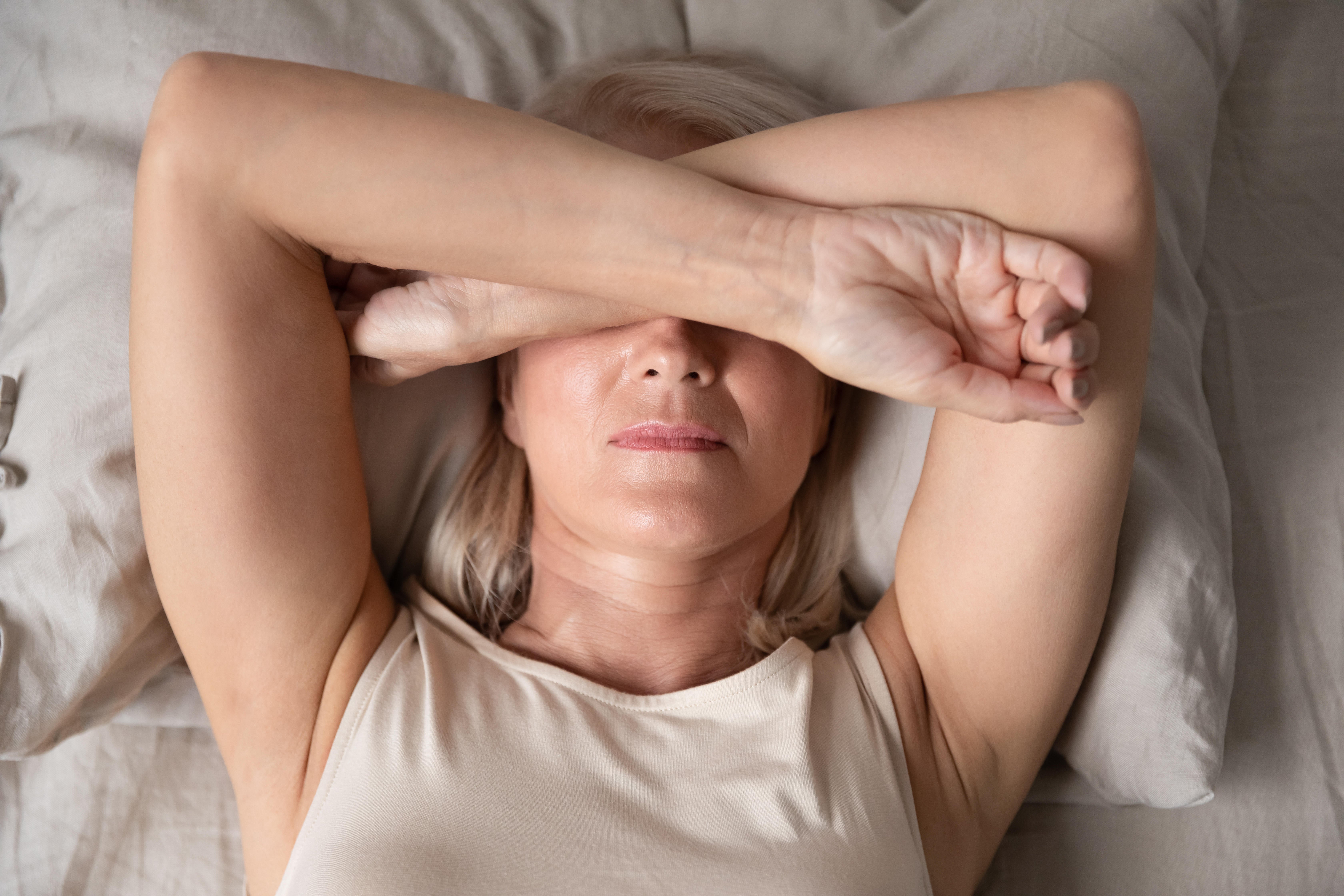Women with menopause symptoms ‘should be offered HRT as first treatment’
The National Institute for Health and Care Excellence announced the changes

Women with symptoms of menopause should be offered hormone replacement therapy (HRT) as the first treatment, a health watchdog has said.
The National Institute for Health and Care Excellence (Nice) said “HRT is the the preferred, recommended approach” for managing symptoms such as hot flushes, insomnia and low mood, and should be offered by GPs in discussion with patients about the risks and benefits.
It comes after draft guidance from Nice last November suggested cognitive behavioural therapy (CBT) – a talking therapy which is designed to help people manage their problems by changing the way they think and behave – could be offered as an alternative or alongside HRT.
That proved controversial and Nice has now rewritten the guidance to stress that HRT should be the first-line treatment, with CBT an option for women in addition to HRT, for people who cannot take HRT or for those who do not want to take it.
Nice has also emphasised in the updated guideline that HRT does not affect overall life expectancy and will not shorten or extend women’s lives.
Physical symptoms of the menopause
According to the NHS
Common physical symptoms of menopause and perimenopause include:
- hot flushes, when you have sudden feelings of hot or cold in your face, neck and chest which can make you dizzy
- difficulty sleeping, which may be a result of night sweats and make you feel tired and irritable during the day
- palpitations, when your heartbeats suddenly become more noticeable
- headaches and migraines that are worse than usual
- muscle aches and joint pains
- changed body shape and weight gain
- skin changes including dry and itchy skin
- reduced sex drive
- vaginal dryness and pain, itching or discomfort during sex
- recurrent urinary tract infections (UTIs)
- sensitive teeth, painful gums or other mouth problems
Professor Jonathan Benger, chief medical officer and interim director of the centre for guidelines at Nice, told a briefing the body had “worked hard to ensure that the place of CBT” is clear and “a number of changes have been made to emphasise that”.
He added: “HRT is our recommended first-line treatment for vasomotor symptoms (hot flushes and night sweats), and we recommend that that should be offered to women, providing that it meets their needs, and following an informed discussion.
“We have revised the guideline to be really clear that CBT is an adjunct, it’s an add-on therapy, and it can help people manage the symptoms… in addition to HRT, or some women may choose not to take HRT, or they may not be able to take HRT, and therefore that’s where CBT can be useful.
“But we are very keen to emphasize that HRT is our recommended first-line therapy for vasomotor symptoms and for symptoms of menopause.”

Prof Berger stressed that “what we’re not saying is that these are not real symptoms that women are experiencing – these are real troubling symptoms and HRT can be very effective.
“The purpose of CBT is it can help people manage those symptoms more effectively, so that they’re less troublesome to them, but those symptoms are real and they exist.”
Marie Anne Ledingham, consultant clinical advisor at Nice, said the original draft wording on CBT had proved “controversial” and a lot of time had been spent “reviewing the wording and the placement of CBT within the guideline and how it ranked in relation to the other recommendations.”
Announcing the draft guideline last November, Nice said it was recommending “more treatment choices for menopause symptoms” and CBT “should be considered alongside or as an alternative to HRT”.
The draft guidance said medics should “consider CBT” for difficulties sleeping, depression and sleep problems linked to the menopause.
The new updated guidance now says CBT can be suitable as an add-on treatment to HRT, or for those who do not want or cannot take HRT.
Also on Thursday, Nice published a “discussion aid” for GPs and patients, including data on how HRT can slightly increase the risk of some health conditions such as breast cancer and blood clots, while lowering the risk of osteoporosis.
Prof Berger said the discussion aid will “help clinicians offer personalised advice to women considering starting HRT.
“Women need to feel confident that they will be offered advice and options that meet their needs, and that they will be supported to make the choices that are right for them.”
Ms Ledingham said: “Menopause care should be individualised and those seeking treatment for menopausal symptoms have the right to make informed decisions about their care.
“The experience of menopause differs substantially between women, but for those seeking treatment for hot flushes and night sweats, this updated guideline offers new options and new evidence about HRT that will support their choices.”
Bookmark popover
Removed from bookmarks